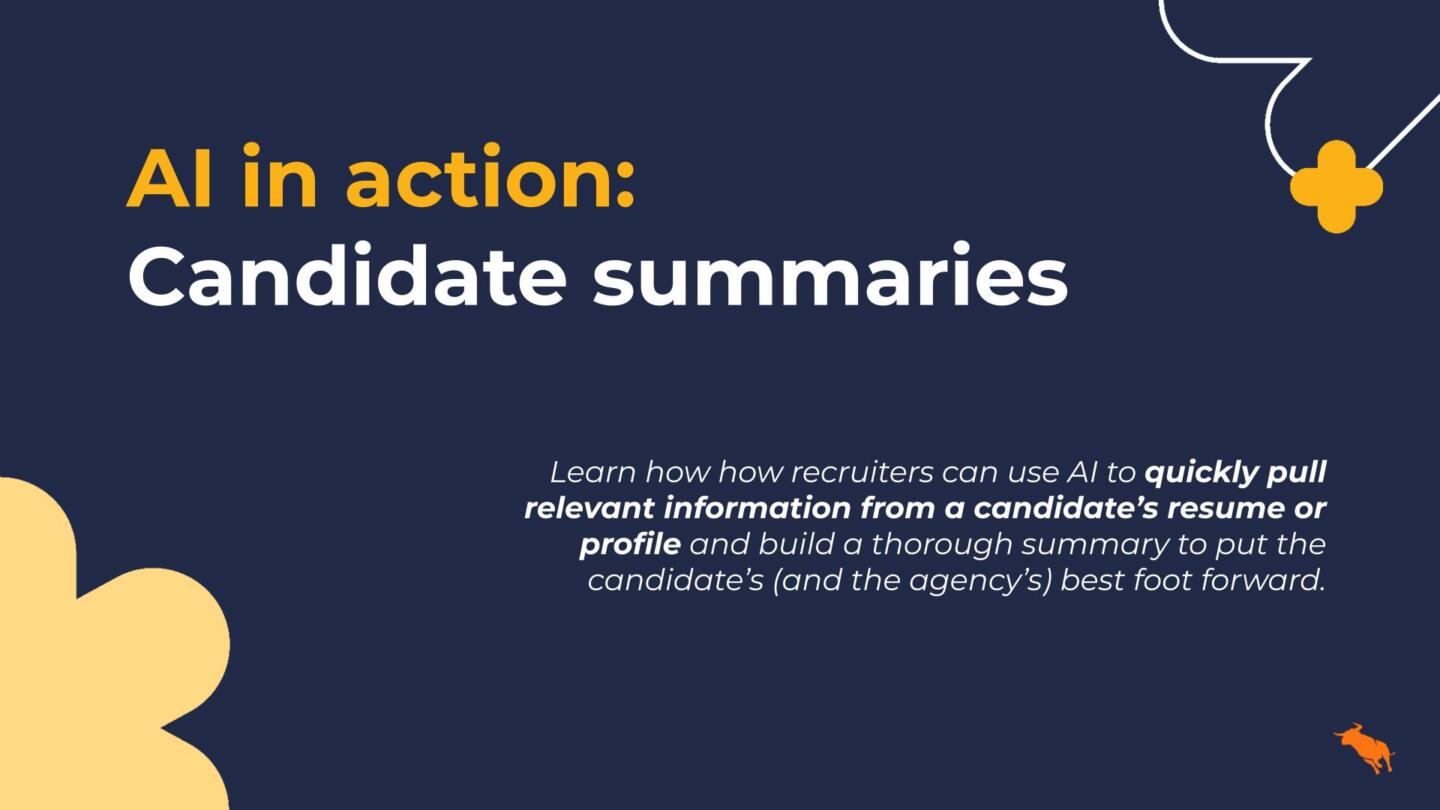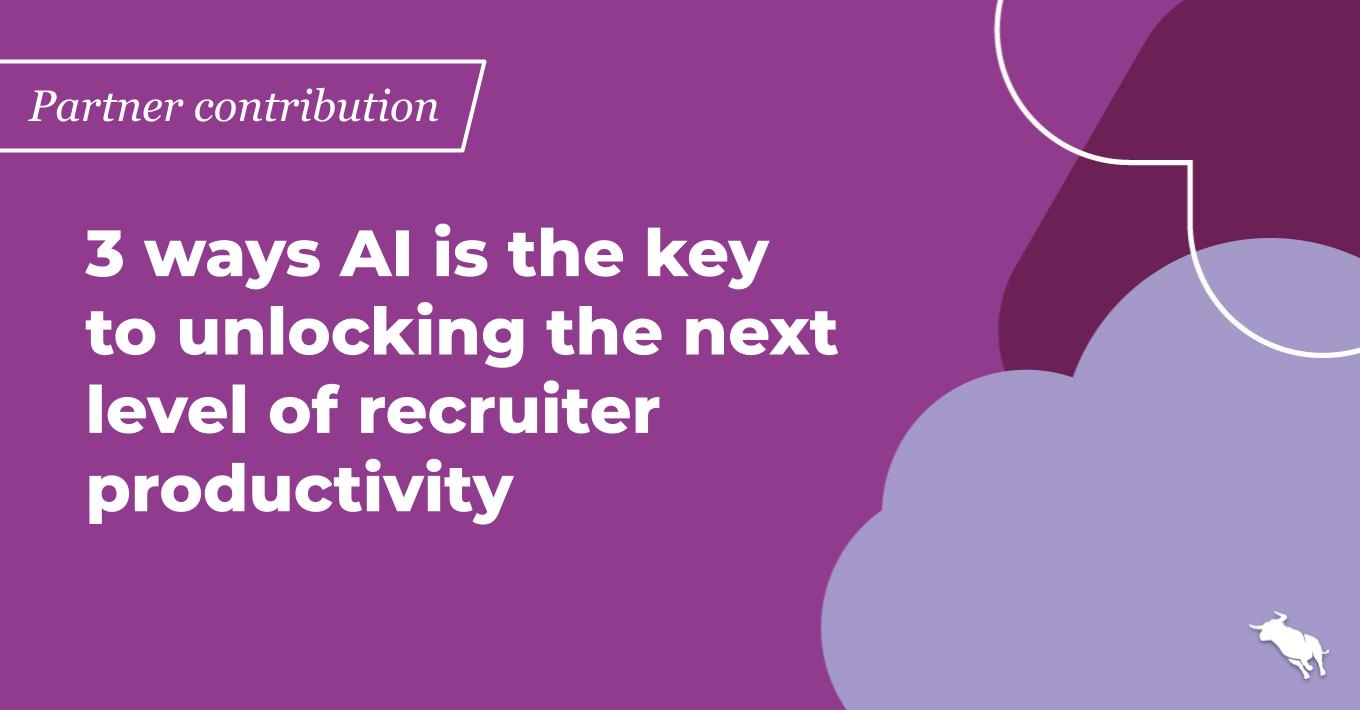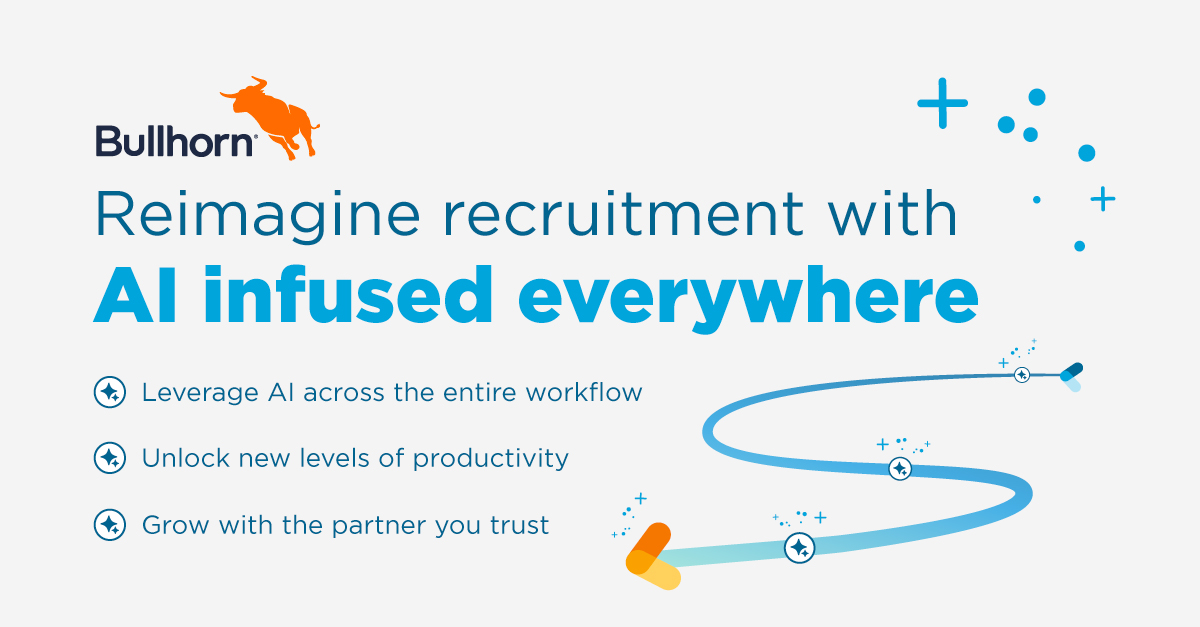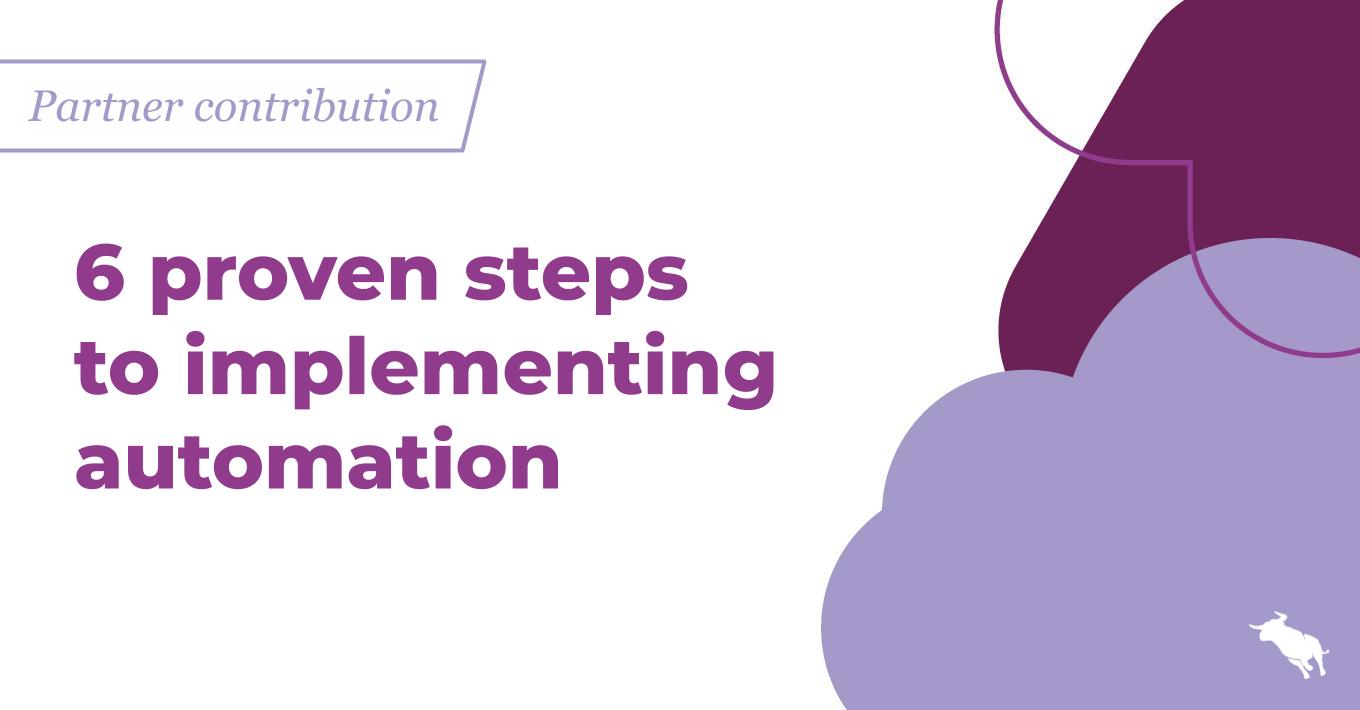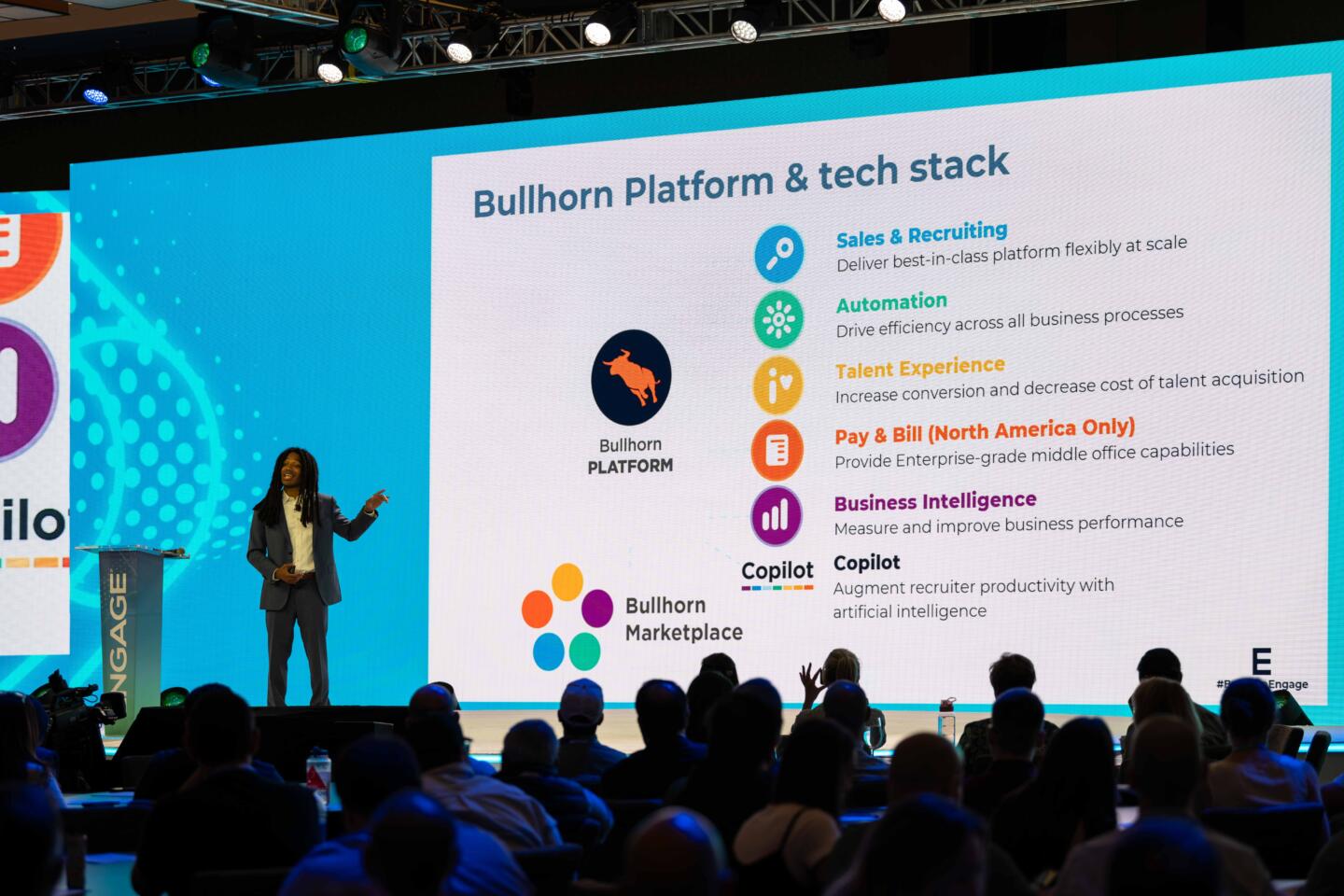The future of staffing AI: Takeaways from the 2024 Vision for Innovation at Engage Boston 2024
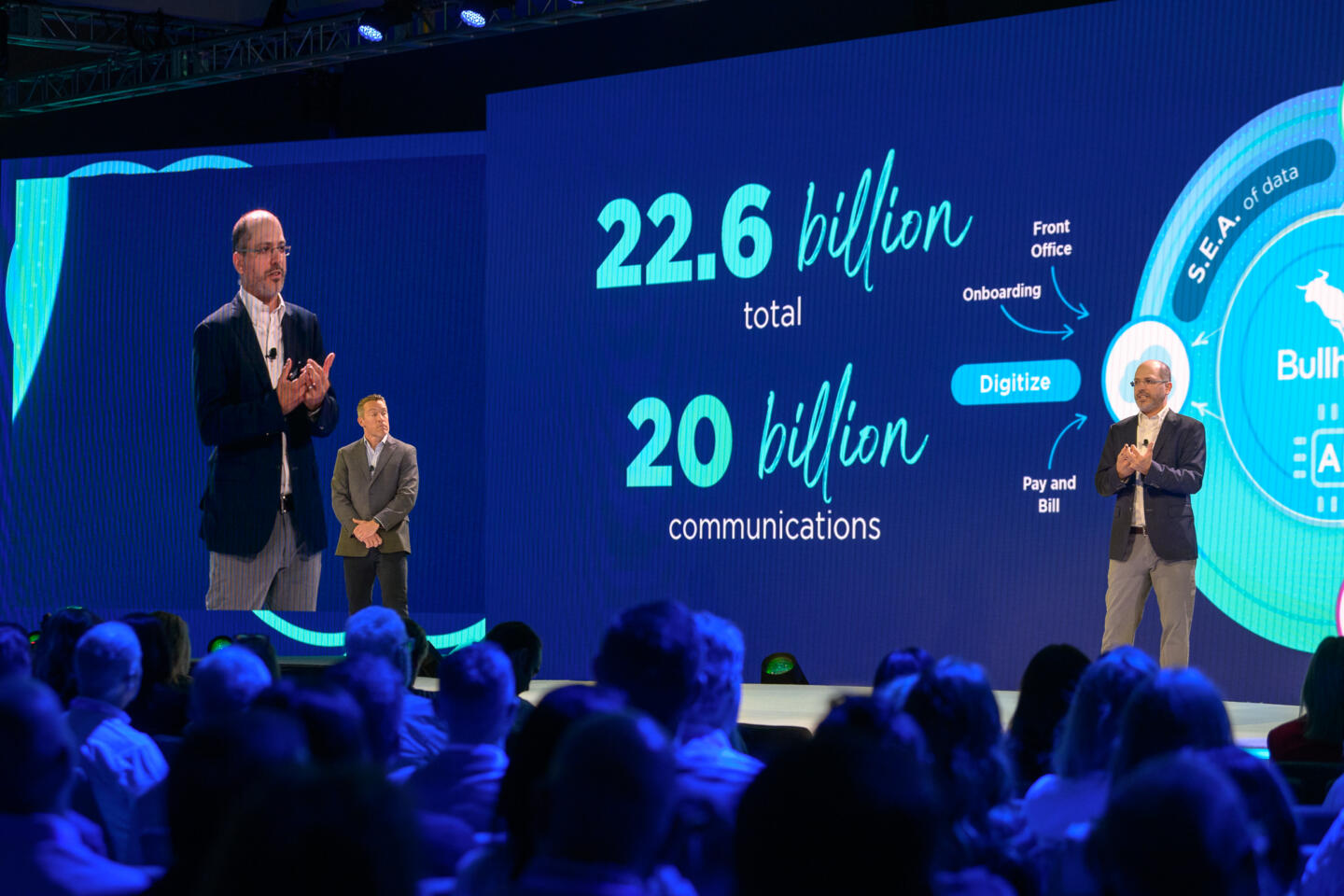
As artificial intelligence becomes more mainstream in our everyday lives, the impacts of AI on the staffing industry are just beginning to be uncovered. With so much buzz about staffing AI and its transformative potential, how can staffing firms move beyond the hype and start to see real change in their businesses?
During the annual Vision for Innovation presentation at Engage Boston 2024, Matt Fischer, President and COO at Bullhorn, and Jason Heilman, SVP Product – Automation and AI at Bullhorn, shared more about the impacts AI can have on staffing firms, Bullhorn’s approach to AI, and what the future of staffing AI might look like.
Check out a recap of their session below, or take a look at the video for the full session:
The benefits of staffing AI
Matt kicked things off by setting the stage for how Bullhorn is approaching AI: “Even in an AI-first world, the recruiter’s job is still the same. They’re trying to achieve the same outcome, which is to go get a job from a client, find the right candidate, screen the candidate, interview the candidate, and place the candidate. All of that is still required and still true, and still what the recruiter will do. They’ll just do it differently and it’ll be more effective and more efficient with AI.”
The journey to leveraging staffing AI requires firms to first digitize their systems and maintain that digitization as they add more components to their tech stacks. Then, staffing firms should leverage automation to remove manual tasks from recruiters’ to-do lists and enable them to focus on higher-priority work, like building relationships.
What type of outcomes can staffing firms expect when they start using AI? Matt and Jason highlighted three main benefits:
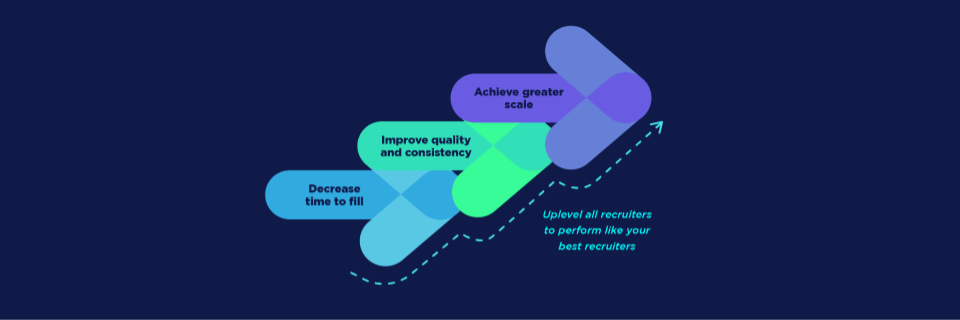 Decrease time to fill by dramatically reducing the time required to complete key tasks
Decrease time to fill by dramatically reducing the time required to complete key tasks
- Quickly find the best candidates to reach out to; searches are built with the click of a button
- Reduce time writing emails and formatting resumes
- Keep your recruiters focused on the highest-value tasks
Improve quality and consistency by finding the right candidates faster and interacting with your candidates and clients at a more human level
- Ensure every search is finely tuned to the job requirements
- Create highly personalized content without knowing the details of the domain
- Make sure key points from every conversation are tracked and actionable
Achieve greater scale by unlocking the power of AI through automation
- Focus everyone on the highest-value tasks
- Have confidence that your data is reliable
- Complete even more tasks with automation
The power of the platform and the importance of having a S.E.A. of data
In his keynote at Engage Boston 2024, Art Papas, CEO and Founder of Bullhorn, introduced the concept of having a S.E.A. of staffing-specific data – Specific, Enormous, and Actionable – to fuel staffing firms’ AI efforts. As Matt explained, “There’s only one way to create that S.E.A. of data, and that’s to have everything on a singular platform and all of your workflow digitized on that platform.” With everything on one platform and the S.E.A. of data as the foundation, staffing firms can effectively apply AI, leverage automation to enable AI to scale, and get the full benefits of reporting and analytics to point their users in the right direction.
“We [have] 22.6 billion records in the Bullhorn platform today. That’s 22.6 billion records that we can use to train AI. 20 billion of those are just related to communication, emails, call logs, and notes. There’s this treasure trove of information that is currently locked in all of this unstructured data,” explained Matt.

Bullhorn’s goal is to ensure staffing firms can get insights from that unstructured data and use those insights to run their businesses. Matt explained that the successful placement count is among the most here “because we know what success looks like, and we know what it looks like at scale.”
Another source of data is Bullhorn One, which helps firms run every aspect of their recruiting business, from intake to payroll. Bullhorn One customers have paid 225,000 payees weekly, and 768 million hours have been worked in the last 12 months. Customers have also sent invoices totaling $13 billion through the platform. Bullhorn reached these exciting milestones by enabling digitization and automation of the entire pay and bill workflow, helping staffing firms improve client relationships and add to the S.E.A. of data.
Data Hub expands the S.E.A of data
Another way to expand the S.E.A. of data is by bringing it all together in a tool like Data Hub. First introduced at Engage Boston 2023, Data Hub combines data in Bullhorn with data outside the platform, like metrics from Marketplace partners, financial software, and payroll providers.
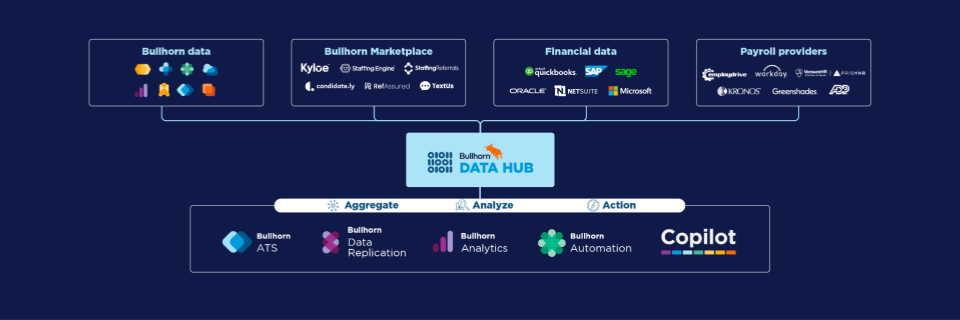
Once the systems are connected and the data is brought into one place, firms can analyze the entire workflow to uncover deeper insights like lead conversion, customer or client satisfaction, and margins. From there, firms can apply AI to turn all of that data and analysis into action.
Customers today achieve a 36% productivity improvement with AI sourcing
As our GRID 2024 Industry Trends Report confirmed, staffing firms are focused on winning new business and improving existing client relationships this year. But, as Art shared in his Engage keynote, old playbooks for business development aren’t working anymore, and firms need to leverage the S.E.A. of data and new technology – like AI – to get ahead.

That’s where AI staffing tools like SourceBreaker by Bullhorn come into play. SourceBreaker searches through job boards to bring every job into a singular database, enabling firms to get more value from open jobs and find more opportunities with potential clients. As Matt illustrated, “There are 380 million jobs that sit inside of this data lake today. 17 million of them are live right now. That means there are 4.6 million customers looking to fill 17 million jobs just today. So talking about how the old sales playbooks didn’t work and how we have to think about that differently going forward, this is an awesome starting point for that.”
It’s not enough to have a repository of data. Firms need to be able to search and interact with their database to get the most value from their data, see the biggest returns, and win more clients. Here, Jason shared how Bullhorn users can sort and filter opportunities in SourceBreaker to uncover clients that have open roles their firm is skilled at or that they have candidates for. From there, recruiters or salespeople can engage with that client and, ideally, add them into Bullhorn to nurture the relationship, improve the conversion rate, and add to the S.E.A. of data.
And firms utilizing this strategy are already seeing huge results. Customers using automation and SourceBreaker achieve a 24% increase in speed to submittal, a 53% increase in redeployment, and 36% more placements per recruiter.
The future of staffing AI
So, how does this entire vision come to life? From the power of the platform and the S.E.A. of data to turning unstructured data into structured data, Bullhorn Copilot, our suite of staffing AI capabilities, will span the entire recruitment process, impacting everything from the front-office ATS to the back-office operations.
Matt and Jason introduced 13 ways that Copilot’s staffing AI features can add value to the staffing workflow, covering everything from business development to searching external job boards.
Please note: some of the functionality below is still in the concept phase. Please contact your Bullhorn Account Manager for more information about current availability.
- Business development: Firms can identify opportunities with clients that match their service offerings and add data about those opportunities directly to Bullhorn.
- Actionable dashboards: By pulling in information from the entire platform, Copilot can suggest jobs that need attention, candidates to reach out to, key metrics, and more.
- AI prompts throughout Bullhorn: Using pre-built prompts right in Bullhorn, users can summarize a candidate profile, create screening questions, or pitch a candidate for a specific role.
- Suggested prompts: The goal of suggested prompts is to direct users to what activity they should do next. After a candidate is submitted to a job, Copilot can suggest the recruiter create screening questions, for example.
- Updates records from notes: Using the call log, which is added as a note on a candidate record via a VOIP provider, Copilot can add relevant information from the call to the candidate record.
- Tagging notes: Based on notes added after candidate calls, Copilot can tag each note with the relevant topic to make searching and filtering even easier.
- Chat with your notes: Before an account manager contacts a client, they can use Copilot to ask specific questions, such as the current state of the consultants already working there. Copilot can also suggest places where the Account Manager can find more information.
- Submit with Copilot: When submitting a candidate for a job, recruiters can utilize Copilot to review all the notes, craft the pitch letter, format the resume, determine which attachments are needed, and package it up to review and submit in just a few clicks.
- Slack and Teams integration: Instead of waiting in Bullhorn for a particular action to complete, like finalizing a call log and adding it to a candidate record, Copilot can send an alert to Slack or Microsoft Teams to alert the user that the action has been completed.
- Core search upgrades: From saved searches to new suggested “intents” at the top of the Bullhorn Search field, Copilot’s impact will extend into our core search functionality. This also includes an updated UI and new smart filters.
- Text to search: Instead of navigating complex Boolean searches, users can simply type in exactly what they’re looking for, such as “Project Managers in Boston.” The AI-powered search will suggest and refine a query as the user adds more information.
- Recommended candidates and auto build searches: Wherever a recruiter might need candidates for a given role, Copilot can suggest candidates who might be a fit. Or, when a new job is added, Copilot can automatically build a search to find recommended candidates using relevant keywords.
- External job board searching: Instead of only running a search within Bullhorn, Copilot can search across job boards without the user needing to craft the same complex search multiple times.
These 13 concepts make up Bullhorn’s long-term vision for the future of staffing AI, and we want to ensure it has the most impact on our customers. Jason put it simply: “What can we really do that’s going to build lasting value to your business and allow you to scale more effectively and achieve all these outcomes?”
Learn how to transform your business development efforts with SourceBreaker and embed the power of AI right into recruiter workflows with Copilot.
And check out more Engage highlights and resources on our Engage Boston Content Hub.
